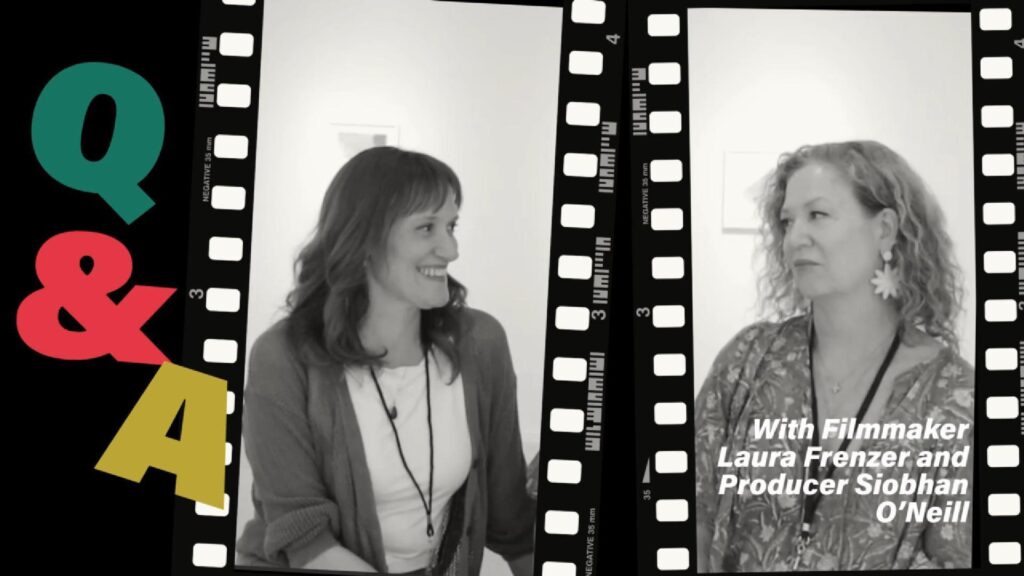
By Sofia Lamento, Free State Festival Contributor
Filmmaker Laura Frenzer and producer Siobhan O’Neill joined Free State Festival’s Eddie Haith to reflect on their award-winning short film, The Hope Chest Has a Secret Drawer. Through haunting memory and a mysterious heirloom, the film explores the emotional toll of Alzheimer’s and the secrets that sometimes surface when memory slips away.
“I was inspired after watching my mother go through Alzheimer’s and caring for her and understanding what that’s like,” Frenzer said. “You don’t really know what that’s like until you watch a person go through it and you help somebody go through that.”
What began as a deeply personal experience became the seed for a fictional narrative. Frenzer was struck by the unpredictable details of the disease, how it disrupted even the most basic actions.
“She would fall into these deep, deep memories of, like, things way in the past that she would remember,” she said.
With that thought in mind, she developed a central question that soon became the emotional core of the film.
“And so, my inspiration was, what if a person remembered something that was really horrible that they were never supposed to tell anybody… deep, deep, dark secret, and they forgot that it was supposed to be a secret. And then it comes out and then once they say it, then it’s gone and that is no longer accessible as a memory anymore.”
O’Neill also shared how working with an all-woman leadership team shaped the set’s collaborative energy.
“It got back to us that our mostly-male crew were talking, and they said, ‘This is like a small budget short, this is one of the best sets I’ve ever been on,’”O’Neill said. “And the other guy was like, ‘Dude, it’s because it’s all women running it.’ That’s your answer.”
While the story of the family secret wasn’t based on her own family, authenticity was key to telling such intimate subject matter for Frenzer. She drew from real moments she witnessed as a caregiver to her mother.
“Rosemary, the mother, isn’t sure about the difference between the paintbrush she is painting with and the spoon that she’s supposed to eat her yogurt with and she puts the paintbrush in her mouth,” she said. “Which is something that my mother did.”
Even the film’s final line comes from her mother. “It’s kind of devastating,” said Frenzer. “Before I even was making a film, I’m like, ‘I’ve gotta use that line sometime.’”
Despite a tight budget, the team pulled together resources through fundraising and community support.
“Lots of favors and a community of very generous friends and creatives,” O’Neill said. “Getting a really crew that believes and cast, that believes in your story is a great way to stretch your budget because people are like, ‘we want to be a part of making this happen.’” Frenzer added.
Their efforts paid off. The film has screened at more than twenty festivals and received numerous awards. But for Frenzer, the most meaningful responses come from audience members who see their own experiences reflected on screen.
“What I love is at the end, with the audience, when you can feel everybody kind of gasp and throughout kind of breathe along with you,” she said. “I love getting that kind of reaction from people,”
“People coming up in tears because they have been experiencing a parent with Alzheimer’s or a loved one and just, like, their relatability and authenticity, you know, they just, I think they just feel so seen because it’s really about this caregiver and her mom. And that’s really rewarding,”O’Neill added.
That quiet resonance, the deeply personal yet universal weight of caregiving, has sparked conversations after screenings and long lines. Frenzer described how this rare opportunity to bond with their community was uplifting because it “reinforces for us the importance of telling these stories, giving a space to talk about the minutia and the tedium and all of these little things.
As for what’s next, the team isn’t ruling anything out.
“That has certainly been something people have asked us about,” said Frenzer. We’ve been thinking and with other producers kind of batting around ideas about what that feature might look like. So we’ll see. Maybe.”
Watch the Full interview Below:
